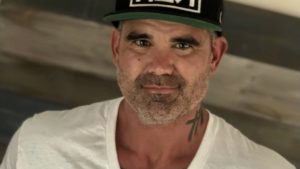
In Conversation With Greg Zinone, Founder of ROI Co-Labs and Pros vs G.I. Joes: Impact Over Egoism
“How many people in the world do you help that you can just say ‘Hi’ to or give a hug and that hug can lead them in a whole new direction in life?”
By Scott Gilman, Staff Writer for Unsugarcoated Media
At the beginning of my interview with Greg Zinone, he was faster than I was at connecting. As soon as we said hi, he was asking where I was calling from, where I went to school, what my aspirations were. I got the feeling he’d be able to get more out of me than I could out of him if I wasn’t careful. Besides being a personable and genuine guy, Greg is the founder of ROI Co-Labs, a studio chain dedicated to creating a digital economy in Africa and helping street artists achieve economic independence.
In the United States, ROI Co-Labs takes artists from underprivileged communities in low income areas who haven’t been afforded the opportunity to work in the digital landscape. Greg readily clears up a misconception about the digital landscape: that everyone can make their millions there.
“If everything is accessible, that doesn’t mean it’s accessible to everyone.”
He remembers bringing ex-prisoners in their early 20s into one of his and his partners’ studios. Greg told me about how these young men couldn’t believe that the opportunities and programs Greg’s team was building were for them. They had no idea that the whole digital landscape was even a possibility for them.
In Africa, Greg and his team teach people in poverty about the economic opportunities in gaming and streaming. His studios teach music production in digital art to potential artists, who can then use those lessons to create their own prosperity, helped along by ROI Co-Labs. In the long-term, ROI Co-Labs wants to create a professional all-African esports league and open a new stadium for the people benefitting from his program.
Greg emphasizes the practicality of his organizations’ help, saying that sometimes “[the support] is just financial. Like you’re doing this, you’ll get there. He can’t pay his rent, we’ll give him something.”
Curious about how and why he achieved this impact in the gaming world, I asked Greg what it was about gaming that made him think it was the way to help. Greg told me that getting into gaming was mere happenstance- he had no idea that he’d go this far.
“I just utilized the talents and relationships that I have… But it’s not a matter of the game,” Greg explained. “It was just literally we got to get from A to B and what’s the best way to connect the A and B, and it was that video game.”
“It’s pointless for me to say, okay, we have all these amazing relationships in the gaming space; let’s create an impact by doing something else.”
Greg’s pragmatic attitude only goes as far as he can use it to do good. He’s business-oriented and knows the realities of his field, but won’t compromise his principles. Said he of some of the shallow people who try to work with him “If I know somebody is gonna use the military to earn a quick buck, I want nothing to do with them, even if the dollars are right.”
This balance between practicality and positivity defines Greg’s work. He works with anyone well-intentioned, knowing that maybe one out of ten connections will lead to something down the road. His willingness to connect was palpable as he kept making sure to relate what he said back to what he knew of me. Greg’s modus operandi is always just to make that positive impact and hope that it will lead to something good.
Greg recalls a time he helped market a new game for a major company and he received a phone call from the head of marketing, who told him she and the other company heads could not understand why he was helping.

Photo from www.washingtonfootball.com
“Andrea,” Greg responded, “I have no idea. I just want to help.”
People do things too much for the get, says Greg. And he believes that people follow the example when you act without regard for your own career. In another anecdote, he remembers a woman speaking about wanting to be heard in an online space, surrounded as she was by business bigwigs. After even a minor acknowledgement from Greg, the space changed. The group was more accommodating, encouraging, and emotional support started binding itself between those present.
You have to play the game a little. You have to have business acumen and seize opportunities. Greg is aware of that and points his talents towards finding gaps. With the same filter with which you see gaps in the market, you can find holes in what people are doing for other people. You can use pragmatism for positive impact.
When speaking of one of his older projects, the Wounded Warrior Project, he emphasized what he was interested in doing for wounded veterans more than other people. He wanted to keep them moving, to get them exercise, to make sure they stay on track.
“A picture and a fancy steak dinner is not really gonna make an impact on these guys’ and girls’ lives… I don’t think we’re reinventing the wheel on anything. I think we’re seeing some good things going on and seeing where there’s gaps in those good things.”
He carries this same philosophy on to ROI Co-Labs. He trains people on how to help themselves and forge their own paths. It’s about practicality. It’s boots on the ground help, doing what good you can with the resources that you have.
To learn more about ROI Co-Labs, visit https://www.roicolab.com


